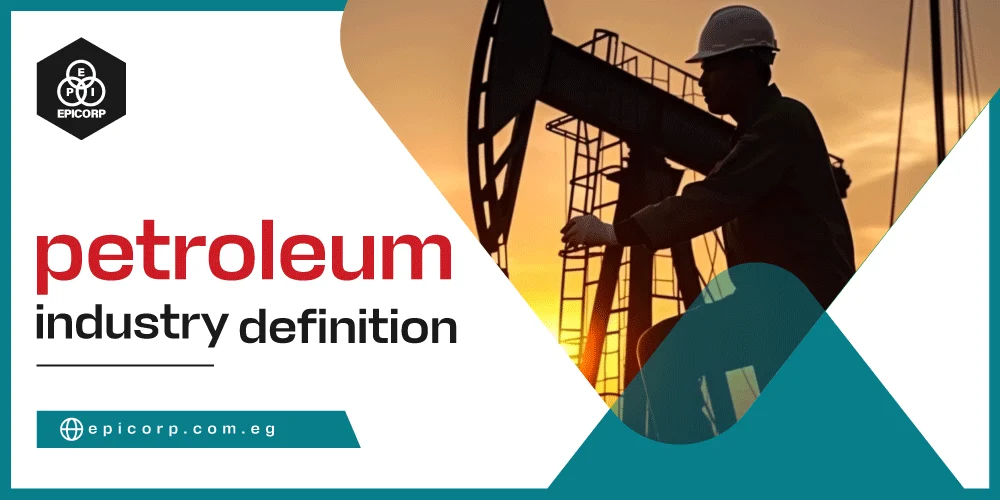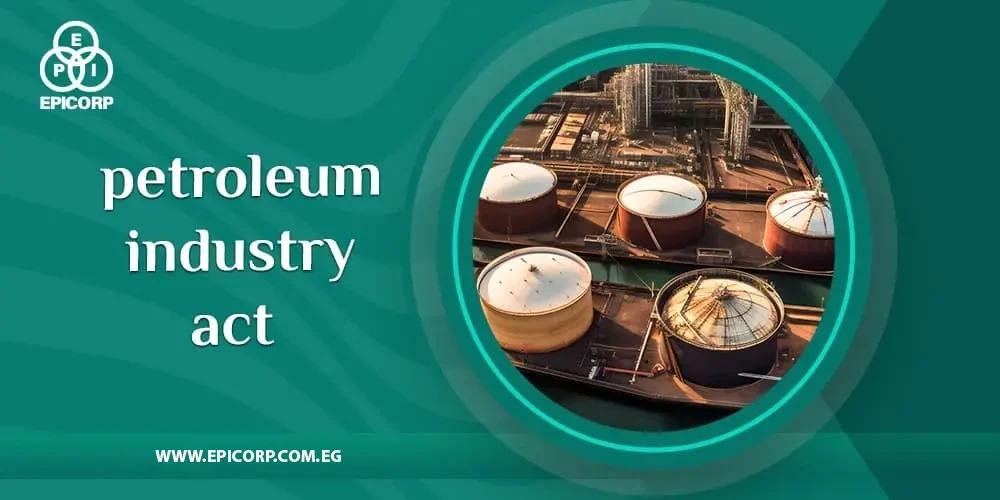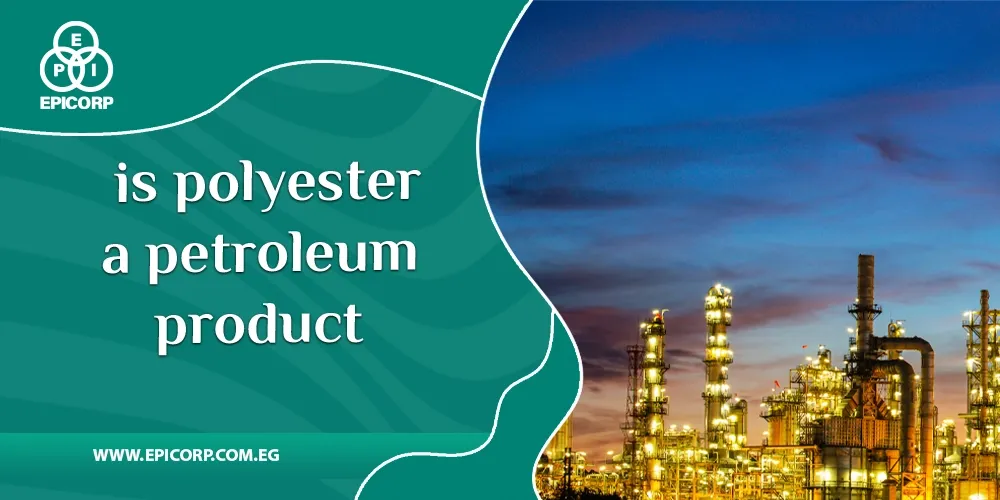The petroleum industry definition, referred to as the oil and gas industry which plays a significant role in the world’s energy field.
The petroleum industry definition also refers to the energy sector as a expansive and complicated sector encompassing exploration, extraction, refining, distribution, and the utilization of petroleum-based products.
Let’s explore together via This article the various aspects of the petroleum industry, its importance, and its impact on the global economy and environment.
Table of Contents
ToggleWhat is petroleum industry definition
The simple petroleum industry definition, could be the successive processes which are precisely related to the production of petroleum products in the fields of energy and industry.
As we mentioned before the petroleum industry definition is various processes, and these processes include:
- Exploration:
This involves the search for oil and gas stored deeply beneath the Earth’s surface. Advanced technologies like seismic surveys are used to pinpoint potential drilling locations.
- Drilling:
Once a point of stored oil is identified, wells are drilled to access the underground oil or gas accumulation.
- Extraction:
Oil and gas are extracted from the reservoirs and brought to the surface for further processing.
- Refining:
The extracted oil undergoes refining processes to separate it into various components, including gasoline, diesel, and other valuable products.
- Transportation:
Refined products are transported via pipelines, ships, and trucks to distribution points for end-users.
- Distribution:
Products are then distributed to consumers, including businesses, households, and the transportation sector.
- Petrochemicals:
The industry also plays a significant role in providing raw materials for the petrochemical sector, which produces a wide range of chemical products and plastics.
Read also: Petroleum Refinery In Modern Times.
Why is the oil and petroleum industry important?
In petroleum industry definition, the petroleum industry is to produce different products of petroleum which enter in many fields, no we will mention some fields where they are used:
1. Energy Source:
Oil and gas are primary sources of energy, powering transportation, heating, electricity generation, and various industrial processes. They are essential for modern society’s energy needs.
Here, closer look in energy related aspects:
- Transportation
Gasoline and diesel, products of petroleum refineries process, power cars, trucks, ships, airplanes, and even trains. These fuels enable the transportation of goods, connecting people and markets across the globe.
- Heating
In colder climates, oil and natural gas are essential, onto only for transportation and light, but for heating which guarantee good productivity via these conditions.
- Electricity Generation:
Many power plants depend on natural gas as a fuel source to generate electricity. Natural gas power plants are known for their efficiency and ability to quickly respond to changes in electricity demand, making them a significant component of the energy field.
- Industrial Processes:
Various industrial sectors, such as manufacturing, petrochemicals, and agriculture, depend on oil and gas for their operations. These resources are used as both energy sources and as raw materials for a wide range of processes and products.
Get to know: What Is Petroleum Energy?
2. Economic Contribution:
Economic growth is significantly influenced by the industry. It provides employment, generates tax revenue, and supports various related sectors, contributing significantly to national and global economies.
3. Technological Advancements:
The oil and petroleum sector has been a catalyst for technological advancements, driving innovation in exploration, drilling, refining, and distribution processes. Many of these innovations have found broader applications across various industries
4. Petrochemicals:
The industry is a primary source of raw materials for the petrochemical sector, which produces a wide range of products, including plastics, chemicals, pharmaceuticals, and fertilizers, impacting various aspects of daily life.
5. Geopolitical Influence:
Oil and gas resources are often located in geopolitically significant regions, which can lead to complex international relations and conflicts, highlighting their strategic importance.
Hers’s: What Are The 10 Uses Of Petroleum.
What is the difference between oil and petroleum industry?
The terms “oil industry” and “petroleum industry” are often used interchangeably, but there is a subtle distinction:
- Oil Industry definition
The oil industry definition typically refers specifically to the sector of the economy that deals with crude oil, from its extraction to its refinement into various petroleum-based products. This includes activities related to drilling, production, and the processing of crude oil into products like gasoline, diesel, and jet fuel.
The petroleum industry definition on the other hand, includes a broader scope. It includes not only crude oil but also natural gas, which is often found alongside oil reservoirs.
The petroleum industry definition involves the exploration, extraction, processing, and distribution of both oil and natural gas, as well as the manufacturing of various petrochemical products derived from these resources.
Read also: Oil Refinery Waste Products.
What are 5 common products we produce from petroleum?
Petroleum serves as a raw material for numerous everyday products. Here are five common products produced from petroleum:
1- Gasoline:
Gasoline is a widely used fuel for automobiles, providing the energy needed for transportation.
2- Diesel:
Diesel fuel powers trucks, buses, ships, and many industrial engines.
3- Jet Fuel:
Jet fuel is essential for aviation, enabling commercial and military aircraft to travel long distances.
4- Plastics:
Petrochemicals derived from petroleum are the building blocks for various plastics used in packaging, construction, and countless consumer products.
5- Lubricants:
Petroleum-based lubricants, such as motor oil and grease, reduce friction and wear in machinery, engines, and equipment.
Conclusion
Petroleum industry definition encompasses a vast and intricate sector that involves activities like exploration, extraction, refining, distribution, and the utilization of petroleum-based products.
It serves as a linchpin in meeting the world’s energy demands, powering transportation, providing feedstock for countless industries, and supporting economic growth. However, the industry faces pressing challenges related to environmental sustainability, resource depletion, and the need for transitioning to more sustainable energy sources.
Epicorp is a company with a notable presence in the petroleum industry investment sector. They are actively involved in financing and supporting various aspects of the industry.
Its contributions play a significant role in shaping the dynamics of the petroleum sector, ensuring the continued development and sustainability of this vital industry.
FAQ
What are the raw materials used in petroleum industry?
The primary raw materials in the petroleum industry definition are crude oil and natural gas.
What is the simple definition of petroleum?
Petroleum is a naturally occurring, flammable liquid found underground that is a crucial source of energy and the raw material for various products, including fuels and plastics



